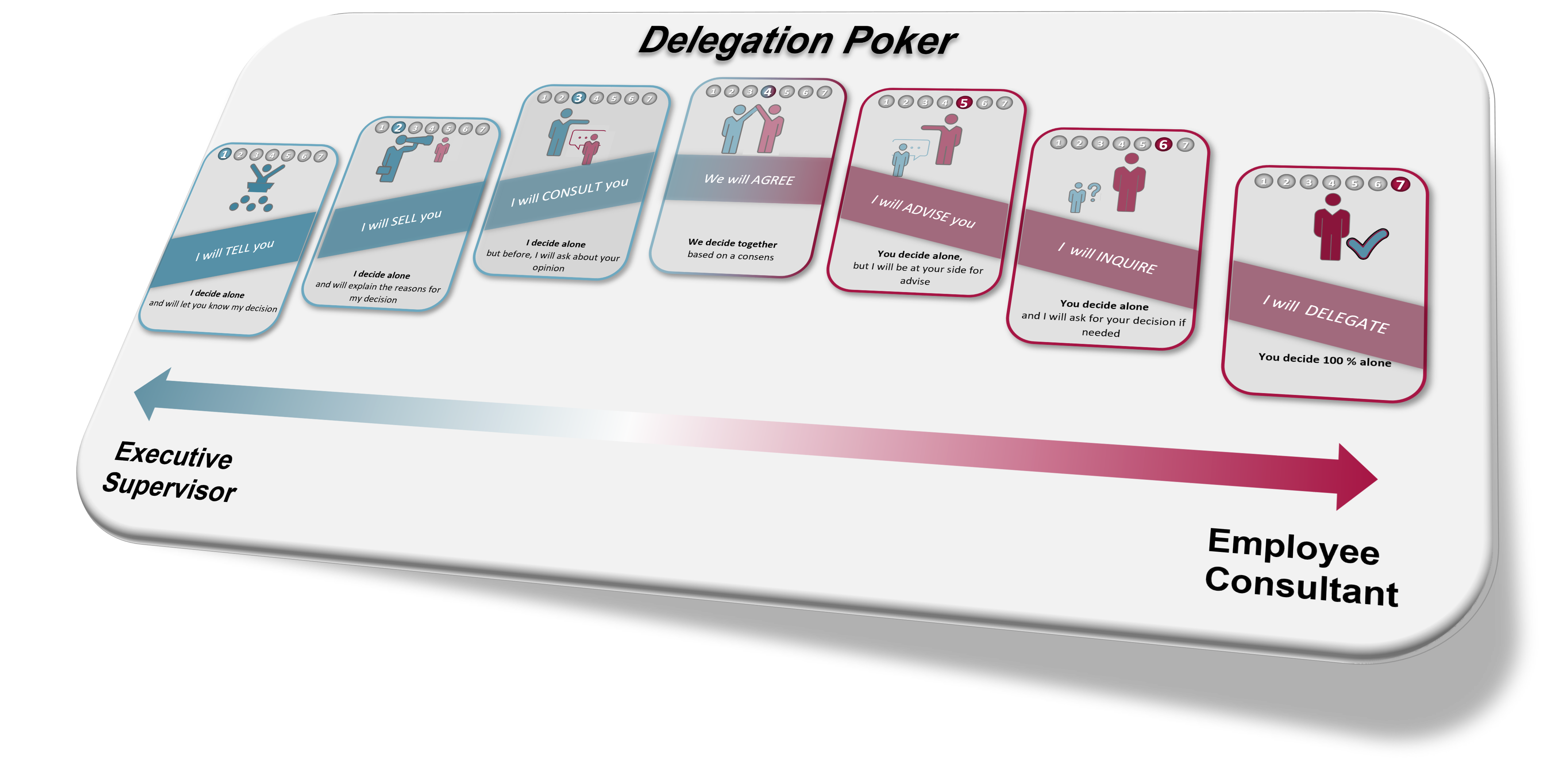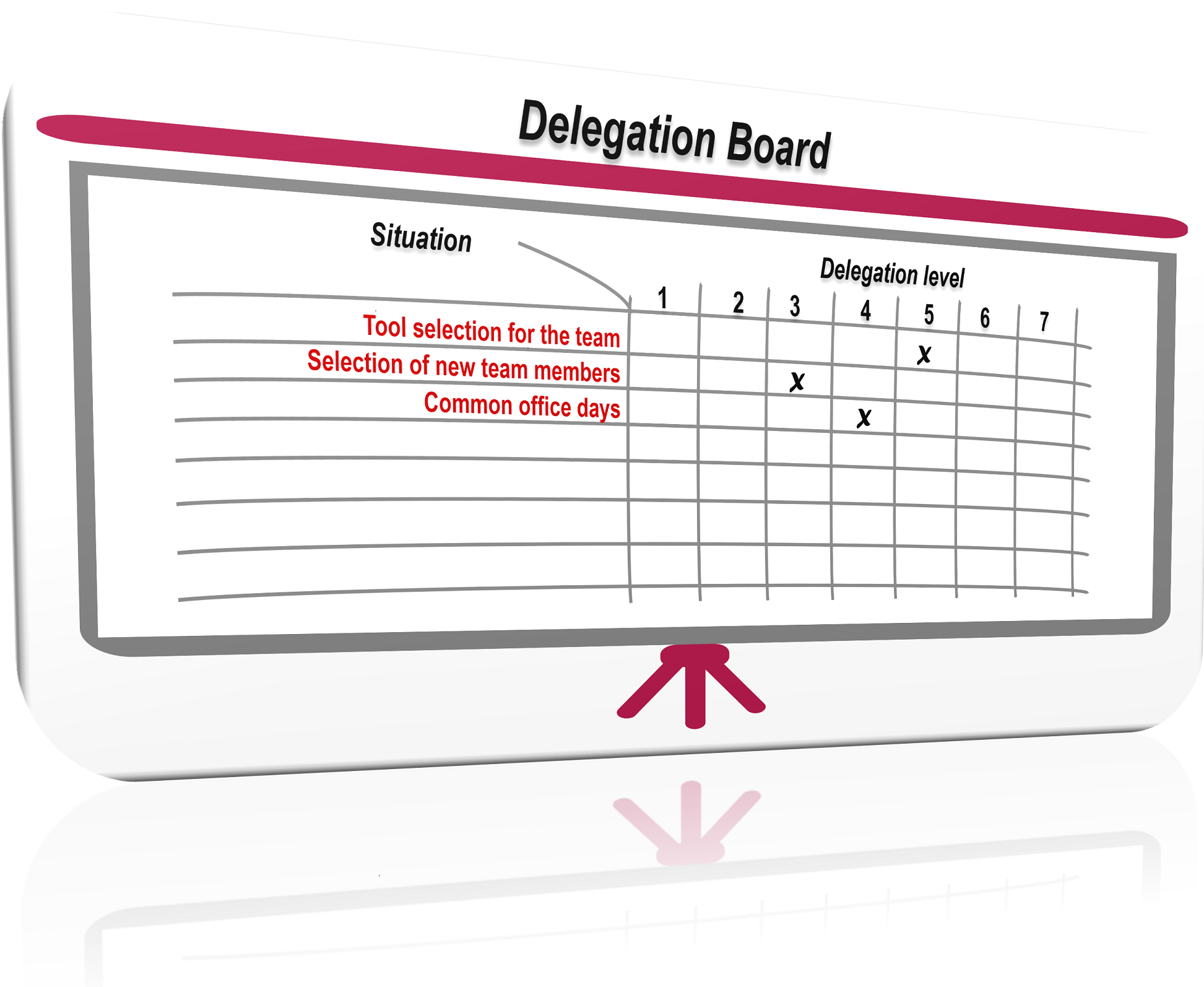Appearance
Delegation Poker
- Subject
- Leadership
- Participants
- Agile Coach / Agile Master, Stakeholders, Managers, the entire Agile Team
- Facilitator
- Agile Coach / Agile Master

Summary
With the method "Delegation Poker", managers and teams can define how tasks, decision making and responsibility can be delegated. This is not binary - there are multiple gradiations.
Definition
"Delegation Poker" offers the opportunity to discuss the delegation of tasks, decisions and responsibilities on an equal footing and to enable transparency for these decision-making processes. It is primarily intended to stimulate discussions to weigh up the advantages and disadvantages of the possible degree of delegation and to find the best possible way for the team. In order to use this method, it is necessary that both sides are open to discuss and agree on the level of delegation for decisions.
Motivation
Executives are often too afraid to put their team in charge and don't know where to start. "Delegation Poker" helps you to address the topic without the risk of making wrong, hasty decisions. Talking to your team will give you an idea for the right degree of delegation.
Results
A transparent delegation board showing how tasks, decisions and responsibility are delegated in the team.
Benefit
Create transparency and a common understanding to which degree decisions are delegated to a team. It helps to empower the team and promote self-organization.
Procedure
Before starting the game each player gets a set of cards numbered from 1 to 7. Each number signifies a different level of delegation.
Level 1 - "announce": The manager only informs the team about the decision.
Level 2 - "sell": The manager decides, but tries to convince the team that the decision is correct.
Level 3 - "question": The manager seeks advice from the team before making a decision.
Level 4 - "agree": The team and manager try to find a compromise.
Starting with the next level the balance shifts in the direction of the team.
Level 5 - "advice": Now the manager advises, but the team decides.
Level 6 - "inquire": The team takes the decision, but the manager enquires the result.
Level 7 - "delegating": The team decides completely autonomously.
As first step in the game, the team contemplates team-relevant scenarios in which decisions have to be made, e.g. about the development of the project design, the hiring of new team members or other topics. All the topics to be discussed are written on a board, leaving a space for the result of the common decision. Then the topics are considered in the following poker rounds - one by one.
Every round is played as follows:
- Each player quietly thinks about which delegation level he/she would choose when making this decision and put the according card covered on the desk.
- When all players have made a decision, the cards are flipped.
- The players with the highest and lowest values each justify their decision. The goal is to find a compromise in the (time-restricted) discussion
- if no agreement was found you play again in a further round until an aligned result is achieved
- the result is written down in the empty space in the list of all topics to be discussed
In addition it is recommended to write all results on a "delegation board", to make all the results transparent. You can adapt the rules how they fit best for you or your team, e.g. to disregarde the highest or lowest value if this was only drawn by one team member.

Tools
Delegation poker cards / flipchart / whiteboard
Hints
All the decisions made, may be reconsidered in the course of the project as the situation may change. It is recommended not just to revoke responibilities, but to play another round of decision poker.